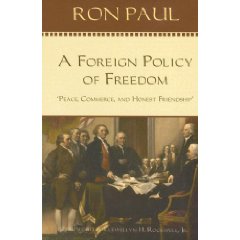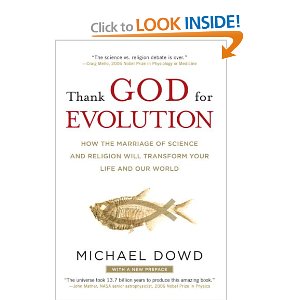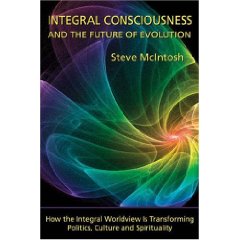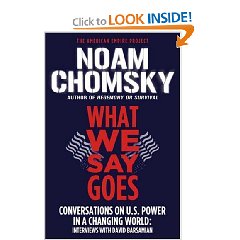My first note is: “the next step.”
The two Appendices are, in my view, a better starting place for the book as a whole.
The author synthesizes natural sciences, developmental psychology, political thought, philosophy, and spiritual traditions. I have a note later in the book on “this helps to understand the DNA of the body-mind-soul.”
The author tells us that integral philosophy can and should be used to design a world federation Constitution, and later on in the book tells us that philosophy should be the bridge between science and religion and later on suggests that philosophy, science, and spirituality (the opposite of rote religion) should retain their distinct values, and not be “blended” inappropriately.
The author is confident that a global self-governance network, while moving some powers up from the national level, will also result in moving many more powers *down* to the local and provincial levels, and this struck me as a point that needs to be developed further if we are to reunite the 27 secessionist movements in the US and the 5,000 secessionist and indigenous splinter groups around the world. That could be a second book in the making!
The author posits (and provides) a universal declaration of human rights, and suggests that tiered membership in a World Federation could start with the US, Europe, Australia, and Japan, and gradually absorb others who are at differing levels of consciousness.
If I had one criticism of the author's work, it is his ready confusion of American and European consciousness and the naked amorality of American policy-makers, including an abjectly dysfunctional and corrupt Congress, with the 50 million plus cultural creatives or the 80-110 million members whose parent organizations belong to Reuniting America. This needs more dissection and remediation.
He tells us that most institutions are artifacts, and this is consistent with the view in Conversations with God and other works about how religions as intermediaries have become false gods, while government and economic and media institutions have become corrupt and mis-representative.
The Wilburian distinction of the it, the I, and the we–nature, self, and culture–is helpful, and the author takes this a step further with his discussion of a cross-cultural spiral.
He provides superb tables and text describing each of the different levels of socio-cultural consciousness, and I now begin to see his view of how integral consciousness can embrace, welcome, and deconflict among differing levels of consciousness, including warrior consciousness among the Islamic fundamentalists, and the modernist and post-modernist consciousness of more developed societies (again, he neglects to address the sharp imbalance between the American people and their terribly retarded government).
He discusses cognitive intelligence, emotional intelligence, and values intelligence, and stresses that science without values is not complete. He acknowledges E. O. Wilson's contribution of Consilience, but does not cite John … who gave us Voltaire's Bastards.
Importantly, he outlines how “what is truth” changes at each level of consciousness, and I find this to be among his most important insights. This is one of the author's most vital contributions, and one that future Administrations would do well to recognize: reality really is socially-constructed, and one must not only see reality as the other person sees it, but see it as a parallel universe that must be respected if one is to engage constructively.
The book works toward a conclusion by noting that integral politics transcends the schism between left and right, and here he cites Paul Ray's work reported out in 1995 on the distinctions in America between the traditionals, moderns, and cultural creatives. He says the degree of transcendence is determined by the scope of *inclusion* and that our challenge is to harmonize and integrate distinct cultures, not subdue them!
Integral consciousness finds *new* solutions via “vision-logic” centered in volition (good intention) rather than cognition, and this is very consistent with the spiritual literature that puts being (action) before planning (cognition). This is a 100-year path of value metabolism equal to the 100-year path since the last Enlightenment.
The author furthers my belief that religions should be rejected as we all adopt direct spiritual relationships with ourselves, others, our societies, and God expressed as the community of man. Beauty, truth, and goodness are the commonalities across cultures and consciousness, windows on the divine, and the place where we examine how values impact on evolution.
A rapid survey of past pioneers if offered:
* Hegel: dialectic of consciousness
* Bergson: intuition, unmediated knowledge
* Whitehead: philosophy as mediator between science and religion
* Teilhard de Chardin: evolutionary thresholds, physiosphere, biosphere, noosphere
* Gebster: coined term “integral consciousness”
* Baldwin: development psychology and genetic logic
* Graves: bio-psycho-social
* Habermas: founder of integral philosophy
* Wilbur: framer of integral philosophy, “big picture”
* McIntosh: need to distinguish, not blend, science, philosophy, spirituality
The author goes on to address the integral reality frame, the spiral of development, and the evolutionary goal of global (but not natural) governances. I was reminded of the “Salmon Nation” and wondered how species representation would play here.
VALUES are what link and nurture the inner and the outer, while making visible previously invisible structures of consciousness and culture across societies and civilizations.
Toward the end the author brings up the Koestner concept of holons, and the view that individual organisms and their social networks co-exist and help define one another in ways that cannot be isolated.
The bottom line: we are moving toward increased complexity and increased unity, and I would add that the author posits a new solution that addresses the reasons why complex societies collapse, when their institutional artifacts fail to rise to the higher consciousness and social network “community mind and soul” that is necessary to scale.
The general direction of truth is the way forward and the transcendent purpose, evolution is sacred (I am reminded of Michael Dowd).
My last comment: “WOW.”
See also:
The Cultural Creatives: How 50 Million People Are Changing the World
The Tao of Democracy: Using Co-Intelligence to Create a World That Works for All
All Rise: Somebodies, Nobodies, and the Politics of Dignity (BK Currents)
One from Many: VISA and the Rise of Chaordic Organization
Escaping the Matrix: How We the People can change the world
The Radical Center: The Future of American Politics
Momentum: Igniting Social Change in the Connected Age
Democracy's Edge: Choosing to Save Our Country by Bringing Democracy to Life
Getting a Grip: Clarity, Creativity, and Courage in a World Gone Mad
Blessed Unrest: How the Largest Movement in the World Came into Being and Why No One Saw It Coming











